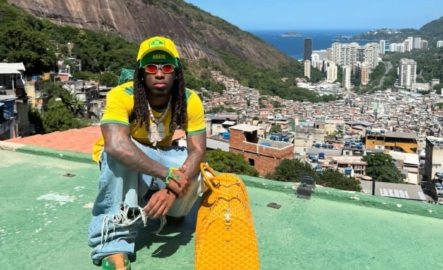African music has always had a distinct sound to its storytelling lyrics. The sounds that tell the indigenous African tale have developed over the years from highlife, hip life and now Afrobeats and Afrobeat.
Highlife music, predominantly found in Ghana and Nigeria, is a storytelling musical content. The sound of this genre is typically African. The use of drums and other local musical instruments brings out a distinct tune that differentiates the African locality.
The uniqueness of it all is what makes Ghanaian highlife music different from Nigerian highlife music, but upon hearing one easily recognizes the highlife genre as a result of the storytelling nature. For example, Ghanaian legend Daddy Lumba has made highlife music his whole career. His unique highlife is different from what Nigeria’s Fela Kuti did, which is also highlife.
But, culture is dynamic and subject to change. The association of legends like Fela Kuti with western musicians and producers produced an infusion of the African beat with some western beats leading to the creation of Afrobeat.
Afrobeat is said to be the brainchild of Fela Kuti. The legendary musician from Nigeria coined the term “afro beat” to describe his early 1970s fusion of jazz, funk, psychedelic rock, and traditional West African chant and rhythms. Typically, Afrobeat conveys messages of liberation.
Today, musicians like Burna boy, Davido, Tems, Wizkid and many more have found themselves producing songs of the genre and selling an African genre to the world.
While many appreciate the beauty of Afrobeat, the confusion lies in how different it is from Afrobeats (with an ‘s’). Well, one is centered on a particular tune and does not change irrespective, the other has multiple tunes and is constantly taking different forms.
For instance, while many Africans had won awards at the Grammys, it took Burnaboys ‘African Giant’ album, which many have said has undertones of Fela Kuti in it, to win a Grammy once more creating a rippling effect as now many Nigerians are being nominated.
The distinct nature of Burnaboy’s sounds, majorly jazz, funk, traditional West African chants and others are what characterize Afrobeat.
When it comes to Afrobeats, the conversation is much wider. Afrobeats delves into dance moves, upbeat sounds that still maintain that afro vibe as well as peculiar lyrics.
The era of 2010-2015 saw the release of a lot of Afrobeats songs. Music acts like Sarkodie, Fuse ODG, Wizkid, Davido, were all releasing Afrobeats songs.
The era is highly termed the ‘Azonto’ era. Ghana had created the ‘Azonto’ dance and musicians were flying high with beats that went with the moves. Fuse ODG sold both the dance and the Afrobeats to the UK.
Afrobeats, essentially, is just an extension of Fela Kuti’s Afrobeat. There is a connection between Afro beats and Afrobeat, as well as a convergence between contemporary Afrobeats practice and the music, way of life, and message of Fela.
Selling Afrobeat and Afrobeats to the world
West African musicians have a long history of being nominated for or winning Grammy Awards –Angelique Kidjo, including King Sunny Ade, Femi Kuti, Seun Kuti, and Rocky Dawuni. However, for an Afro beats artist to achieve the same, they needed an album that was intricately woven with Fela’s soul.
Through a nomination for Best World Music Album at the 62nd Grammy Awards in 2020, Burna Boy’s African Giant (2019) opened the path for Afrobeats. A year later, at the 2021 Grammy Awards, when his album Twice as Tall (2020) won Best Global Music Album, Afrobeats finally had its big moment.
The Grammys have now recognized Afrobeats three times in a row thanks to Wizkid’s Made in Lagos (2021) nomination in the same category. Wizkid’s song Essence with Tems was also up for Best Global Music Performance.
The attractiveness of both Afrobeat and Afrobeats lies in the desire of Africans in the diaspora to connect with their African roots one way or another and which other way than through music.
Again, the dance challenges orchestrated by the musicians after releasing their songs have reached a larger audience through social media apps like TikTok thereby generating a larger interest that goes beyond the shores of Africa.
In addition, the popularity of musicians like Burnaboy, Davido, Wizkid and their collaborations with some of the biggest stars in the world have gained extra audiences who are excited to have these artistes perform live. Those performances at festivals in the UK and the U.S. have all pushed the Afrobeat and Afrobeats agenda to the global market.
A typical Afrobeat song would be Fireboy DML’s Peru that featured Ed Sheeran in the remix and a typical Afrobeats song would be Kizz Daniels ‘Buga’ and Burna Boys ‘Last last’
Yes, the difference is confusing, but there’s a reason one has an ‘S’ and the other doesn’t. While one is concentrated on a specific fusion (Afrobeat), the other is an extension and has multiple fusions to create the magic we have all come to love (Afrobeats).
Either way, both genres are selling Africa to the world.










